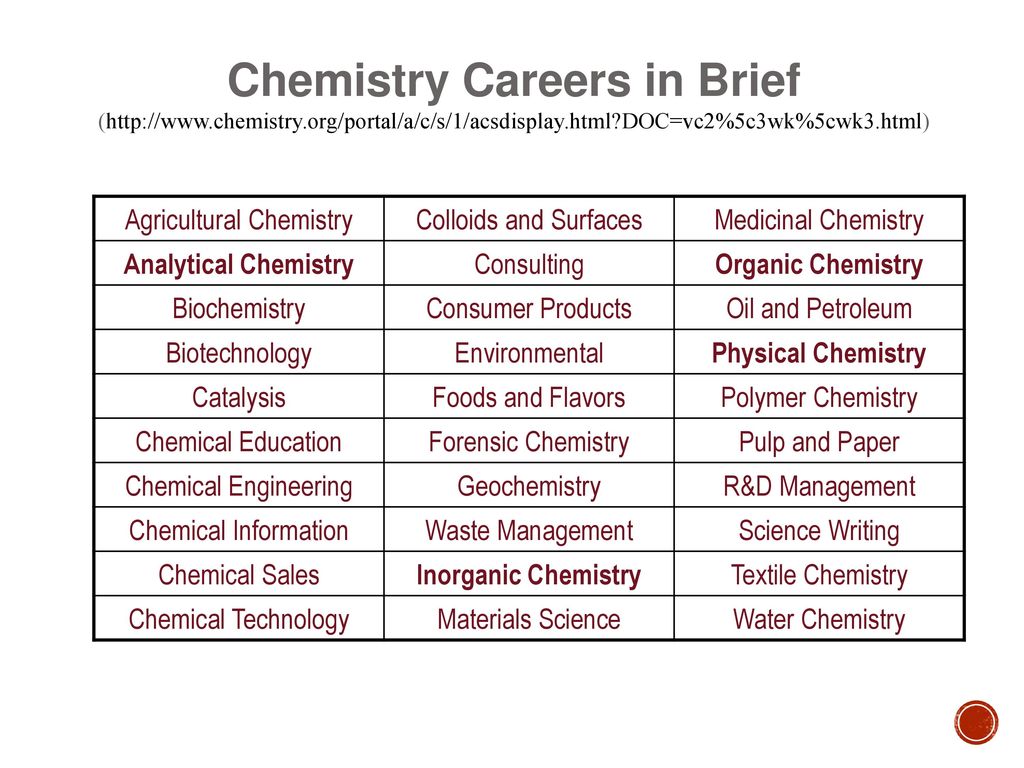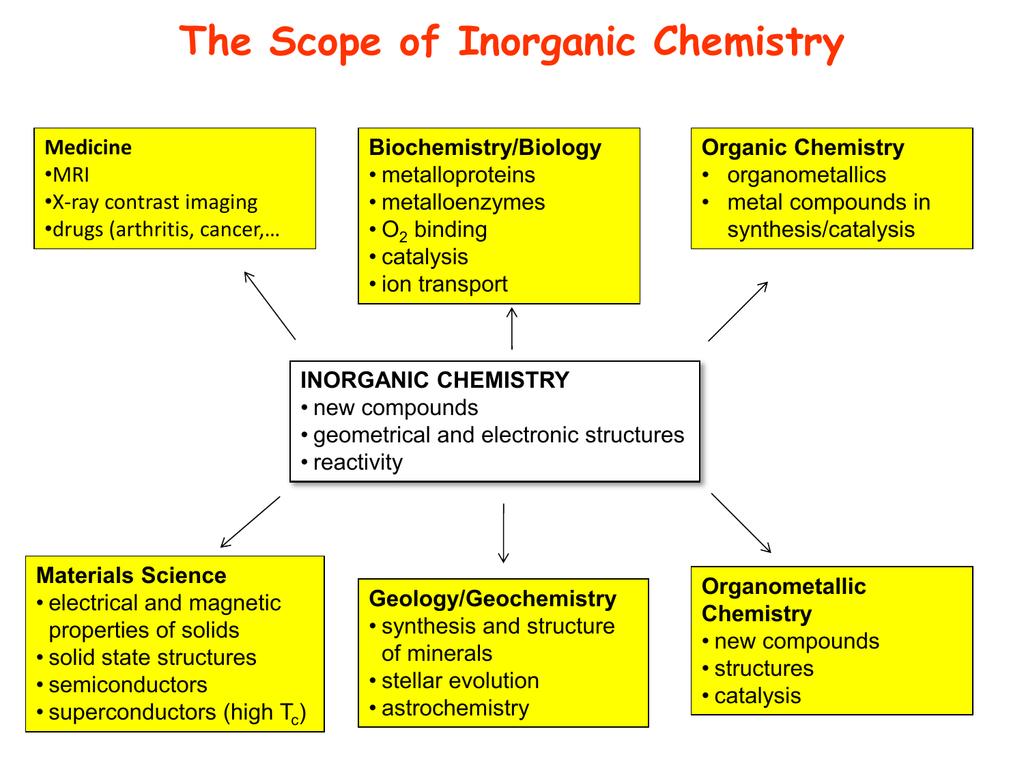रसायनशास्त्रातून करिअरचा महामार्ग निवडा....

रसायनशास्त्रात बीएस्सी केल्यानंतर
रसायनशास्त्रात बीएस्सी केल्यानंतर आपण रसायन विज्ञानव्यतिरिक्त बायोटेक्नॉलॉजी, बायोन्फार्मेटिक्स, नॅनोटेक्नॉलॉजी, मटेरियल सायन्स आणि फूड टेक्नॉलॉजी ते एमएस्सी करू शकता. केमिस्ट्रीत बी.एस्सी केल्यानंतर आपण अॅनालिटिकल, अप्लाइड, ऑर्गेनिक, इनऑर्गेनिक, इंडस्ट्रियल एन्व्हायरमेंटल, मेडिसिनल, पेस्टिसाईड अँड अॅग्रोकेमिकल्स, फार्माकॉलाजिकल, फिजिकल, पॉलिमर, शुगर डेअरी किंवा टेक्स्टाईल केमिस्ट्रीत एमएस्सी करू शकता. आजच्या नोकरीच्या जगात रासायनिक विश्लेषण इन्स्ट्रूमेंशनमध्ये प्रशिक्षित असणार्या संशोधनकर्त्यांची सतत गरज भासते. अॅटोमिक एनर्जीचा अभ्यासक्रम आपल्याला बंगळूरच्या रिसर्च अॅटोमिक रिसर्च सेंटर टाटा इन्स्टिट्यूट ऑफ फंडामेंटल रिसर्च, आयआयएससी येथे करता येतो. अॅटोमिक एनर्जी आणि न्यूक्लिअर एनर्जीचा सध्याचा वाढता विस्तार पाहता त्यासाठी कुशल मनुष्यबळाची नितांत गरज आहे. याशिवाय फेलोशिपच्या आधारावर परदेशात उच्च शिक्षणही घेता येते. परदेशात शिकण्यासाठी इच्छुक असणार्या विद्यार्थ्यांना प्रवेश मिळवण्यासाठी जीआरई आणि टॉफेल टेस्ट पास करावी लागते.केमिस्ट्रीत पदव्युत्तर पदवी केल्यानंतर केमिस्टच्या रूपाने रोजगाराची मोठी संधी मिळू शकते. केमिस्टची औषधी कंपन्यांपासून फूड इंडस्ट्री, ब्रेव्हरेज, वाईन, टेक्स्टाईल, पेस्टिसाईड आणि अन्य खासगी कंपन्यात गरज भासते. केमिस्ट म्हणूनच आरबीआयमध्ये नोट छापण्याशी निगडित कामातही करियर करू शकता. राष्ट्रीय मानक ब्यूरो, पुरातत्त्व विभागातही केमिस्ट्रीच्या तज्ज्ञांना करियरची संधी असते. रसायनशास्त्राच्या विद्यार्थ्यांना विविध प्रकारच्या प्रयोगशाळेत काम करण्याची मुबलक संधी मिळते. याशिवाय डीआरडीओ (डिफेन्स रिसर्च आणि डेव्हलपमेंट ऑर्गनायजेशन) च्या देखील देशभरात प्रयोगशाळा आहेत. जर आपण केमिस्ट्रीत एमएस्सी किंवा पीएच.डी. करत असाल तर शास्त्रज्ञ होऊ शकता; अन्यथा केमिस्ट्रीपासून बीएस्एसी केल्यानंतर सायंटिफिक असिस्टंट किंवा अधिकारी म्हणून काम करू शकता. भाभा अॅटोमिक रिसर्च सेंटर, नॅशनल थर्मल पॉवर कॉर्पोरेशन, ओएनजीसी, गेल यासारख्या संस्थेत तज्ज्ञांना नेहमीच मागणी राहिली आहे. सीएसआयआरच्या देशात 70 हून अधिक प्रयोगशाळा आहेत. या ठिकाणी केमिस्ट्रीतील तज्ज्ञांना काम करण्याची संधी मिळते.
आज औषधी कंपन्या असो किंवा कॉस्मेटिक, पेय पदार्थ, औषधी, लेदर, पॉलिमर, साबण आदी उद्योग, कारभार हा संपूर्णपणे केमिस्ट्रीशी निगडित आहे. केमिकल्समध्ये अनेक प्रकारचे प्रयोग केले जात आहेत आणि त्यात रोजगाराच्या संधीही उपलब्ध होत आहेत. अशा स्थितीत आपल्याला रसायनशास्त्राची मूलभूत माहिती असणे आवश्यक आहे. ही मूलभूत माहिती केमिस्ट्रीच्या मूलभूत माहितीबरोबरच बीएस्सी अभ्यासक्रमास प्रवेश घेण्याचीही संधी निर्माण करते. हा अभ्यासक्रम पूर्ण केल्यानंतर आपण करिअरसाठी कोणतेही क्षेत्र निवडू शकता. जर आपल्याला लवकर नोकरी कररायची असेल तर बीएस्सी पूर्ण करून करियर सुरू शकतो. केमिस्ट्रीत पदव्युत्तर पदवी केल्यानंतर किंवा रिसर्च करत असाल तर त्यातही रोजगाराच्या व्यापक संधी आहेत. या विषयात करिअरचा विचार केल्यास त्यात आठ ते दहा प्रमुख मार्ग पाहता येतील. त्यात अध्यापन, रिसर्च, फार्मास्युटिकल्स कंपन्या, एज्युकेशनल टेस्ट हाऊस, मेडिकल रिप्रेजेटिंव्ह, लघू उद्योग आदींचा प्रामुख्याने उल्लेख करता येईल. या ठिकाणी विद्यार्थ्यांना थेट रोजगाराची संधी उपलब्ध आहे.
रसायनशास्त्राशी संलग्न अभ्यासक्रम करताना एक बाब लक्षात ठेवावी, ती म्हणजे कोणत्याही उद्योग किंवा संस्थेत आपल्या कौशल्याची पारख केली जाते. त्यामुळे प्रयोगशाळेत काम करताना आपल्या कौशल्यात विकास करण्याचा प्रयत्न करायला हवा. म्हणूनच केमिकल अॅनालिसीस म्हणजे अॅनालिटिकल केमिस्ट्रीत सजग राहणे गरजेचे आहे. पुस्तकातून नवनवीन माहिती गोळा करणे गरजेचे आहे आणि शास्त्रीय दृष्टिकोन विकसित करण्याबाबत जागरूक असायला हवे. भारतात बहुराष्ट्रीय कंपन्या ठिकठिकाणी रिसर्च अँड डेव्हलपमेंट विंगची निर्मिती करत आहे. फार्मास्युटिकल्स कंपन्या, कॉस्मेटोलॉजिकल कंपन्या, अॅनालिटिकल केमिस्ट्रीशी निगडित प्रयोगशाळा यात सर्वाधिक रसायनशास्त्र तज्ज्ञांना मागणी आहे. देशात चार नॅशनल टेस्ट सेंटर आहेत. दिल्लीत श्रीराम सेंटर असून तेथे अॅनालिस्ट केमिस्ट्रीसाठी विद्यार्थ्यांची नेहमीच मागणी राहिली आहे. रिसर्च अँड डेव्हलपमेंट विंगमध्ये रॅनबॅक्सी, ल्यूपिनसारख्या खासगी कंपन्या सात ते आठ लाख रुपयाचे वार्षिक पॅकेज विद्यार्थ्यांना देत आहे.
रिसर्चशिवाय अध्यापन क्षेत्राचा विचार केल्यास शाळेतही इंजिनिअरिंग आणि अन्य कॉलेजमध्येही केमिस्ट्री शिक्षकांना मोठी मागणी राहिली आहे. आज पर्यावरण अनुकूल रसानशास्त्रांना मागणी आहे. या क्षेत्रात काम करण्यासाठी ग्रीन केमिस्ट्री लोकप्रिय होत आहे. अशीच स्थिती बायोकेमिस्ट्रीची देखील आहे. त्यात प्रावीण्य मिळवल्यास चांगले करियर होऊ शकते. त्याचवेळी मॅनेजमेंट आणि फार्मास्युटिकल्स, प्लास्टिक्स, पॉलीमर, पेट्रोकेमिकल्स, फॉरेस्ट्री, फूड प्रोसेसिंग आदी अनेक उद्योगात मार्केटिंग आणि प्रॉडक्शनचे काम करता येते.
देशातील आणि राज्यातील नामांकित विद्यापीठ, महाविद्यालयात रसायनशास्त्रविषयक अभ्यासक्रम शिकवले जातात. याबाबत आपण ऑनलाईनवरही माहिती मिळवू शकतो
रसायनशास्त्र हे विज्ञानाचे दुसरे केंद्रीभूत क्षेत्र आहे. एकीकडे भौतिकशास्त्र आणि दुसरीकडे बायोलॉजी या विषयावर ओव्हरलॅप करते. केमिस्ट्री हा एक व्यापक विषय आहे. याचा संबंध मायक्रोस्कोपिक आणि मॅक्रोस्कोपिक या दोन्ही गुणांशी आहे. सर्वप्रकारच्या मटेरियल्स, ऑर्गेनिक, इनऑर्गेनिक, बायोलॉजिकल तसेच प्रत्येक प्रकारच्या परिवर्तन प्रक्रियेत आणि ट्रान्स्फार्मेशन आदींशी त्याचा संबंध येतो. आपण जे काही मिळवतो, ते रासायनिक प्रक्रियेतून मिळवतो. औषधी ही केमिकल्सपासूनच तयार केलेली असतात. याप्रकारच्या बहुतांश सौंदर्य प्रसाधनात केमिकलचा उपयोग केला जातो. आज या विषयाचा प्रत्येक क्षेत्रात वापर होताना दिसतो. सध्याच्या काळातील बाजार हा गरजू वस्तूंनी भरलेला आहे. मग कपडे, चप्पल असो, विविध प्रकारचे पेंटस असो, औषध निर्मिती असो या प्रत्येक ठिकाणी रसायनची गरज असते. बांधकाम क्षेत्रातही केमिस्ट्रीला मागणी आहे. तसे पाहिले तर बहुतांश उद्योग हे केमिस्ट्रीशी निगडित असणार्या विद्यार्थ्यांना रोजगाराची संधी उपलब्ध करून देत आहेत. अनेक ठिकाणी संशोधक म्हणून तर काही ठिकाणी केमिस्टच्या रूपातून तर काही ठिकाणी प्रयोगशाळेच्या कामासाठी उपयुक्त ठरत आहे. आजघडीला फार्मास्युटिकल्स कंपन्या असो किंवा कॉस्मेटिक, पेय पदार्थ, औषधी, चर्मोद्योग, पॉलिमर या सर्व क्षेत्रात रसायनशास्त्र तज्ज्ञांची गरज भासत आहे. रसायनशास्त्रातून करिअरचा महामार्ग कसा निवडू शकतो, ते पाहूया.


JOB POSITION
|
JOB DESCRIPTION
|
Research Chemist
|
Research Chemists are responsible for
interacting and examining the chemical compounds. They will help other
chemists to improve work like developing new medicines, finding new practical
applications, and diagnose disease treatments. They may also file the
documents regarding the client’s test, maintain reports, and develop new
products.
|
Research Associate
|
Research Associates are responsible
for designing, coordinating, and conducting field level surveys. They will
analyze and collate findings from the developers and maintains the
information. They conduct training and monitor the survey done by the
workers. They also present the reports based on the research on projects.
|
Chemistry Project Assistant
|
Chemistry Project Assistants are
responsible for performing scientific research and apply chemical principles
to study human diseases, and their origins and they trained how to treat
them. They may also create and study new pharmaceutical drugs to treat them.
|
Synthetic Organic Chemist
|
Synthetic Organic Chemists are
responsible for analyzing chemical compounds and use the information they
discover to find new applications for those chemicals, with their ultimate
goal of improving our quality of life. They are work in a number of
industries that are pharmaceuticals or petrochemicals.
|
Analytical Organic Chemist
|
Analytical Organic Chemists are
responsible for asserting liability and compiling and analyzing account
information. They may also recommend financial actions by analyzing
accounting options. They will document financial transactions and evaluation
of chemicals by entering account information.
|
Opportunities in Pharmaceutical Companies, Food Manufacturing Companies, and Personal, Baby and Household Care Product Companies
Chemists:
Job Descriptions: There are many different possibilities for the type of work a chemist could do in industry. It really depends on the company and what degree (bachelor's vs. master's vs. Ph.D.) an employee is required to have been working in a certain area. Possible types of bench chemistry work include new product or new technology development, manufacturing scale-up work, quality control or quality assurance, or new methods development. Other areas of employment for chemists include management positions or working for the regulatory department of a company. Some companies require a Ph.D. degree before they will hire chemists for work in new product development, methods development or in management.
a. New Product/Technology Development: Chemists who work in industry developing new products or technologies may be responsible for designing the synthesis of a new drug (for example) and then carrying out that synthesis to make sure it is feasible. They might be responsible for determining if a drug that is currently available in pill form would be stable if offered in and alternative form such as an I.V. solution. They may work on new material technologies like adhesives, paints, and coatings. In the petroleum industry, development chemists might work on developing new, more environmentally friendly refining methods for the production of gasoline. Product/technology development chemists use chemistry knowledge from many different disciplines (organic chemistry, inorganic chemistry, biochemistry, physical chemistry, etc.) depending on the area of industry that they work in.
b. New Methods Development: Chemists working in new methods development mainly deal with analytical chemistry. These chemists develop and improve upon the analytical methods that chemists working in the quality control/quality assurance (see part d below) department use to test products to make sure they are safe for consumer use. New methods development chemists might work with liquid chromatography methods, gas chromatography methods, wet-chemistry tests, bio-assays, spectroscopy methods and so on, depending on the needs of the industry they are working in.
c. Manufacturing & Scale-Up: Chemists involved in this field of industry are responsible for transferring small-scale processes from the research laboratory over to large-scale manufacturing processes for production in plants. This area is especially important in the pharmaceutical industry for synthesizing drugs at production scale. The pH, concentration of active drug compound, and concentration of impurities are all very important when manufacturing pharmaceuticals. While it may be easy to control these factors at a laboratory scale (milligram quantities), the task may not be so simple when manufacturing large-scale amounts (kilogram quantities).
d. Quality Control/Quality Assurance: Chemists who work in quality control or quality assurance play a very crucial role in industry. These scientists are the ones that make sure that a company's products are safe to sell to consumers. Quality control chemists use a variety of analytical techniques, including HPLC, GC, bioassays, wet chemistry tests, spectroscopy, TLC etc, to check factors such as concentration, acidity, basicity, biological activity, purity, etc. Scientists working in quality control test new products to make sure they are ready for release to the consumer market and test existing products to make sure they are safe to keep on the market.
e. Management: Chemists can also work on the management side of industry. Some companies may require a certain amount of experience as a lab scientist and/or an upper level degree (master's or Ph.D.) before hiring new employees or promoting current employees into management positions. In other companies it may be possible to be promoted into a management position with a bachelor's degree. Management in industry has many levels. Managers may be in charge of a small group of scientists within a larger department, they may be in charge of a department within a larger division of the company or may be in charge of an entire division. This really depends on how a specific company is laid out. A manager's responsibilities may include keeping track of his group's work load, making sure new products get to production on time, making sure existing products are being tested at regular intervals to confirm their safety/efficacy, even taking care of his or her employees career advancement needs. Those working in management typically work on teams with other managers within a department or division to make sure that the company as a whole is running smoothly.
f. Regulatory: Every company has regulatory departments that deal directly with regulatory agencies such as the FDA. They have to be very familiar with the expectations of the regulatory agencies that their company deals with to make sure that all operations are being run within regulations. Regulatory agencies will run audits (both announced and unannounced) of companies within their jurisdiction to make sure that all rules and regulations are being followed. It is the company's regulatory division that deals most directly with the agency when this happens. Additionally, regulatory divisions are responsible for preparing approval packages for new products that a company wants to bring to market. For example, pharmaceutical companies need to get approval for new drug products from the FDA before releasing those products to market. Petroleum companies may need approval from the EPA before releasing new products on the market to make sure that the product will not cause harm to the environment.
Education: Chemists can get a job working in industry with a bachelor's degree in chemistry, a master's degree, or a Ph.D.. The type of industry you want to work in, the specific company within that industry, and the department or division within a company you want to work for will determine what level of education is right for you.
Reference link: https://sites.google.com/a/pulaskischools.org/gosse/hidden-webpage-information/careers-in-chemistry
Quality Control/Regulatory
Manufacturing
- Formulation Chemistry
- Process Chemistry
Military & Law Enforcement
Agricultural Field:
- Job opportunities in Agrochemicals and Paste Management
- Companies related to Insecticides, Herbicides, Pesticides
- Fertilizer Industries






















0 Comments:
Post a Comment